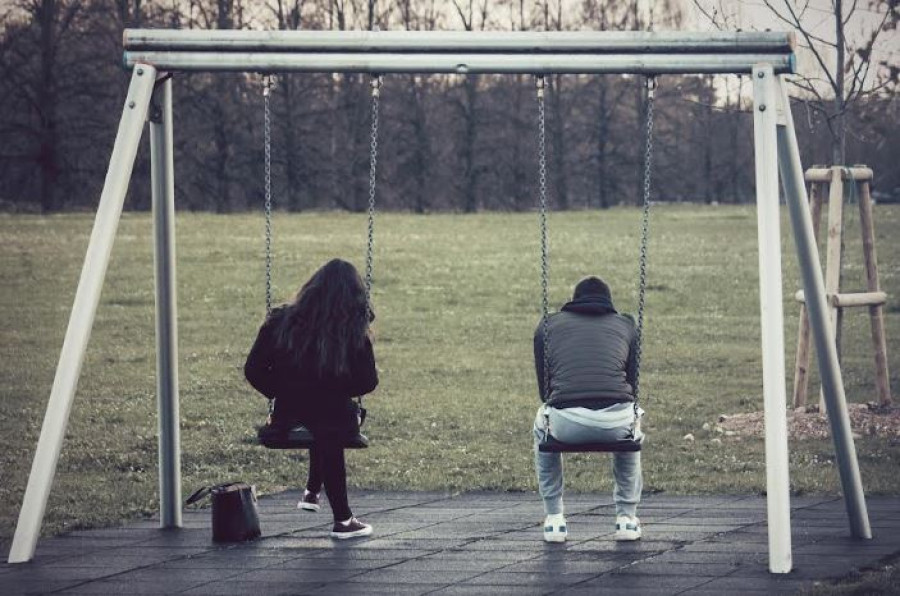Fiction Park
Does she get hiccups?
As the years passed, I became increasingly shackled by the mundane—drained by its repetitive cycle.
Sarans Pandey
After many years, I have randomly realised that I get hiccups less often than I used to. As I quietly sit on my chair sipping tea, which tends to be a bit too strong for most people’s liking, I find myself wondering, looking blankly at the dust-covered trees in my neighbourhood cleansing themselves in the unceasing July rain, if what we were told as kids were somehow true. That you get hiccups if you are missed.
For someone who has been fortunate or unfortunate to have been ‘educated’ by a few decent academic institutions, I feel such a premise ought to hold no sway over how I perceive things. The appropriate response in the age of rationality, I guess, would be to look for what the world would call a scientific explanation of things. But try as I may, I can’t seem to ignore the once unmistakably apparent correlation.
Every time I got hiccups as a kid, I would rattle off the names of all those dear to me, secretly hoping that it would be the image of my crush in mind to ease the discomfort finally. And if the hiccups stopped, my face would light up with a gleeful smile, as if the tale I concocted had somehow been whispered into her ears and, instead of being dismissed, embraced.
Ironically, what I felt most convincing about the whole thing was how unavailing it could be and that often, no matter how much I repeated her name, the hiccups wouldn’t stop. I’ve always been sort of a skeptic, unconvinced by the idea of infallibility, especially after the discovery that even contraceptives don’t offer hundred percent protection. As such, I felt that all those failed attempts every now and then were merely evidence of the whole thing being real. Disappointed, I’d pour myself a glass of water, giving up telepathy for what I guess was a more pragmatic but mundane solution. It is somewhat absurd that I’d consider the approval of a story painted with the wide brush stroke of wishful thinking as something real, but as I look back and find everything that has happened and everything that didn’t, equally out of reach and the memories of what did happen and what didn’t happen equally embraced by nostalgia, I find even imagination, that which bridges life to fantasy, is as part of life as the moments that are lived.
There was this girl in school, a year younger than me, with whom I was deeply infatuated. Beyond gorgeous, with elegance befitting royalty. I never spoke to her while we were in school, and I doubt I would have found the courage to do so without our keyboards covering my shame. But even then, our exchanges never went beyond random Facebook birthday greetings. To be honest, I never even got to know what her voice sounded like. Never found out about her favourite colour, singer, actor, or any of the details one would fill up in a dear one’s notebook. I didn’t know her birthday or even the city she was born in. All I knew about her was her name and her roll number which I guess is as trivial as it gets.
Despite being nothing more than a familiar stranger passing by the large hallways of our school, where footsteps echoed indiscriminately anytime someone walked by, she was the first person I endeared. The first with whom I shared a future in the sanctuary nestled above the clouds of concoction. Perhaps the reason why I never approached her was because doing so would involve dragging her from the comforts of fantasy into the struggles of the mundane, and that, I felt, would only insult the love I felt for her.
I didn’t know what love actually meant—I still don’t—but one thing I’ve always been convinced of is that the emotion itself is unquestionably boundless. So, the question was: why limit it? Why limit the time I could spend with her? Why limit the yarns I could spin to impress her? Why limit what I could offer as presents? Why let the flesh and blood constrain what was meant to be eternal? Unable to answer all these questions convincingly, I took asylum in a fairy tale, unperturbed by the possibility of inadequacies in how I expressed how I felt. I think I won. Or should I say, I lost, only to Father time.
Anyways, during that phase, I’d get hiccups most often, which would come at random moments throughout the day as messengers from the treasured land. If the hiccups stopped as I remembered her name, I’d take a step back from the mundane, put a cape on and fly away through the secret passage. On occasions they didn’t, I’d continue thinking of the few friends and family who were likely to keep me in their mind. My mom's face would usually be one of the first I saw, prompting me to wonder what she was up to. Perhaps she was taking out one of the many identical suitcases she asks me to put on top of the cupboards everytime I go home, and she thought of me as she stretched to reach for the handles, most of which are now broken.
I would hope she was being careful and sometimes the hiccups would disappear. As the years passed, I became increasingly shackled by the mundane—drained by its repetitive cycle. So many circles ran around the same track of life that I ended up being dazed and confused, unable to find the hidden doorway to escape from the worldly labyrinth into the colourful world of my concoction.
Only after I chose to forsake the world, relinquished all meaningful pursuits, and retreated into isolation could I find my way back to the promised land. Alas when I opened the once familiar door several years later, I found it abandoned. No souvenirs of affection, no final goodbye letters. Nothing. I guess even in dreams, people don’t wait forever. Now some ten years or so later, I have no idea where she is or what she is doing. Is she as content as she was back in the days? I would like to think so. Hope so. Because what else can I do but hope? And when I hope for her to have a blessed life, does she get hiccups? Does she think of the boy who she exchanged glances with many years ago or does she just gulp down a glass of water?
Pandey is a graduate of Macquarie University, Australia.




 21.31°C Kathmandu
21.31°C Kathmandu










